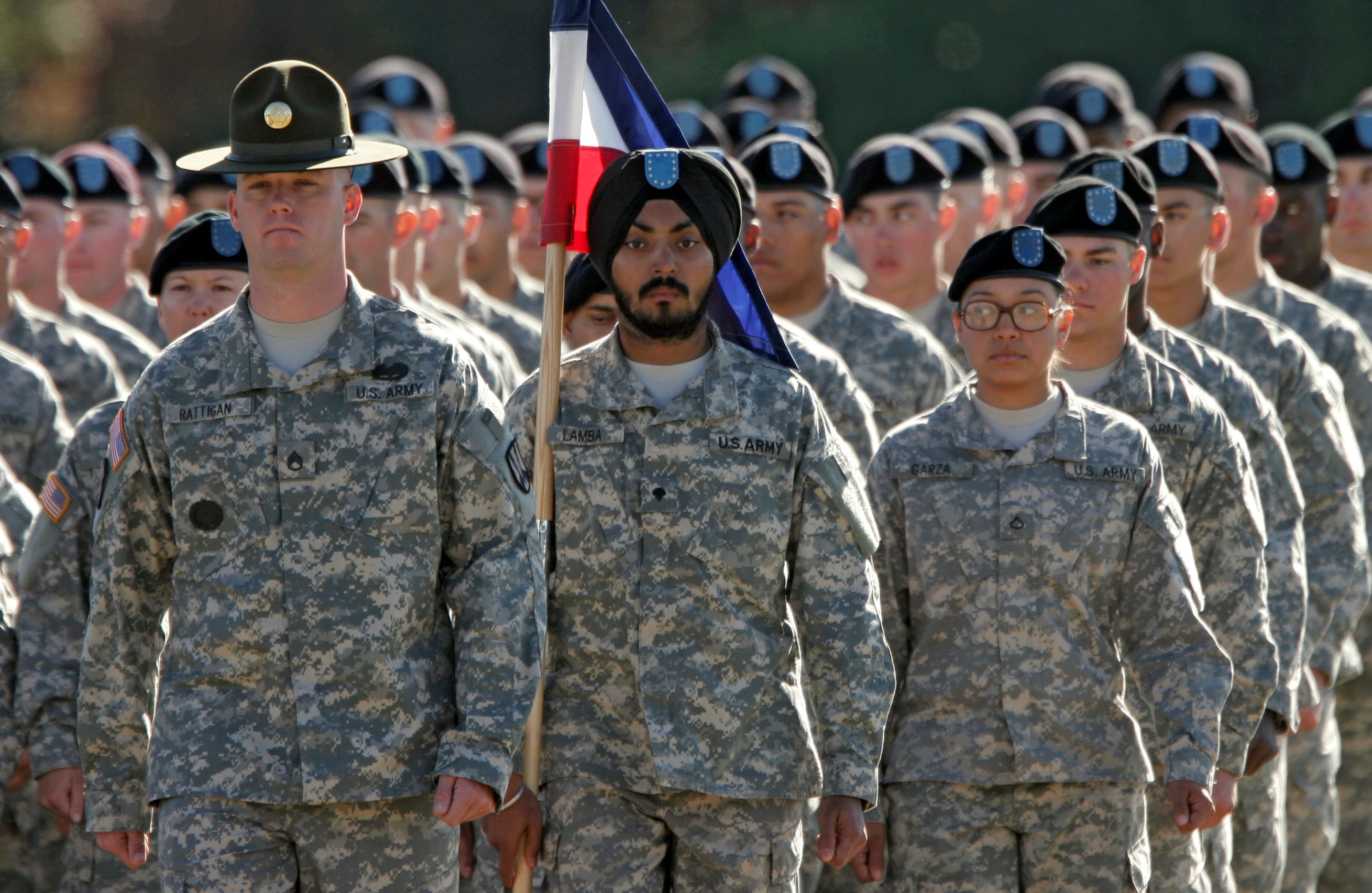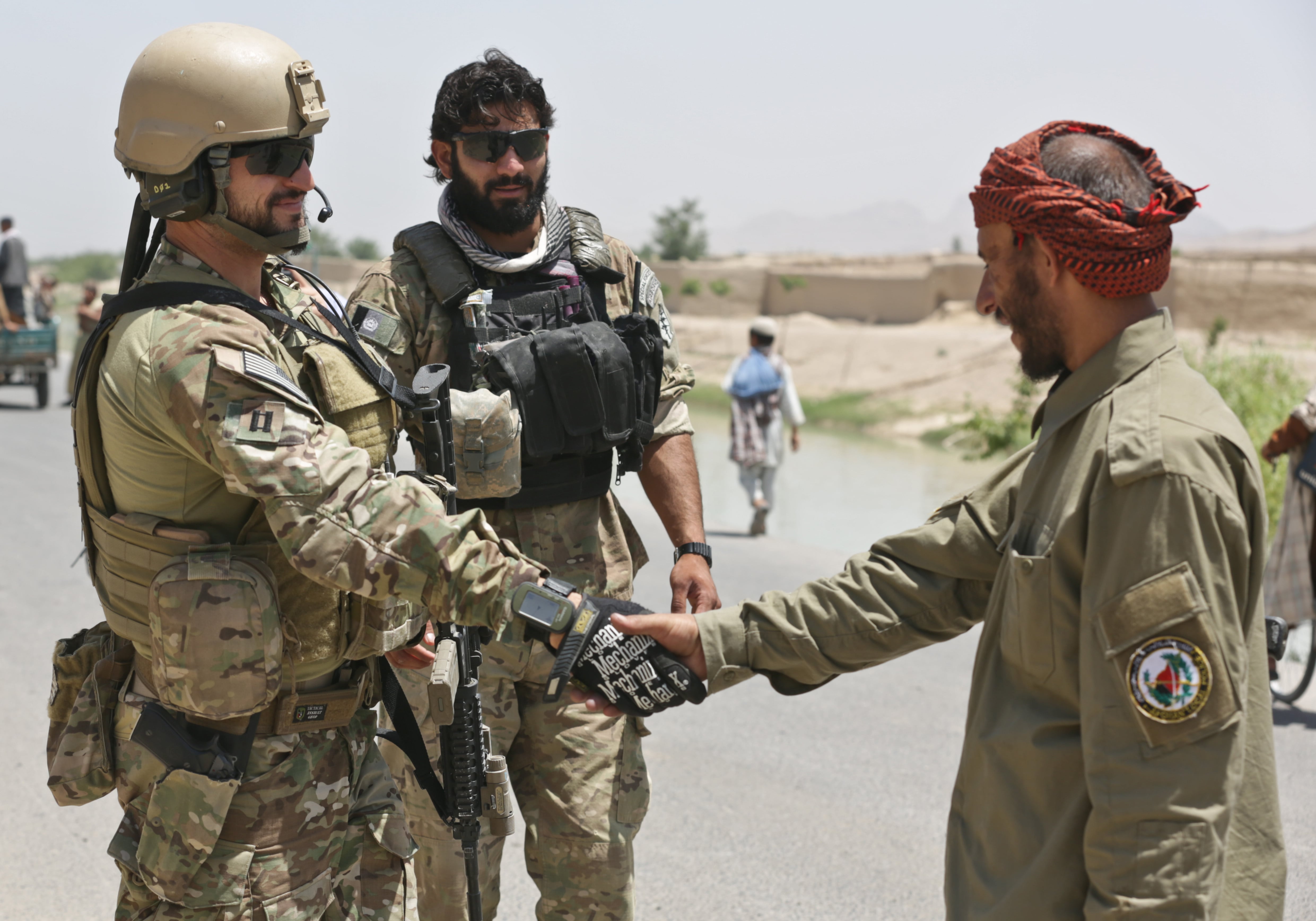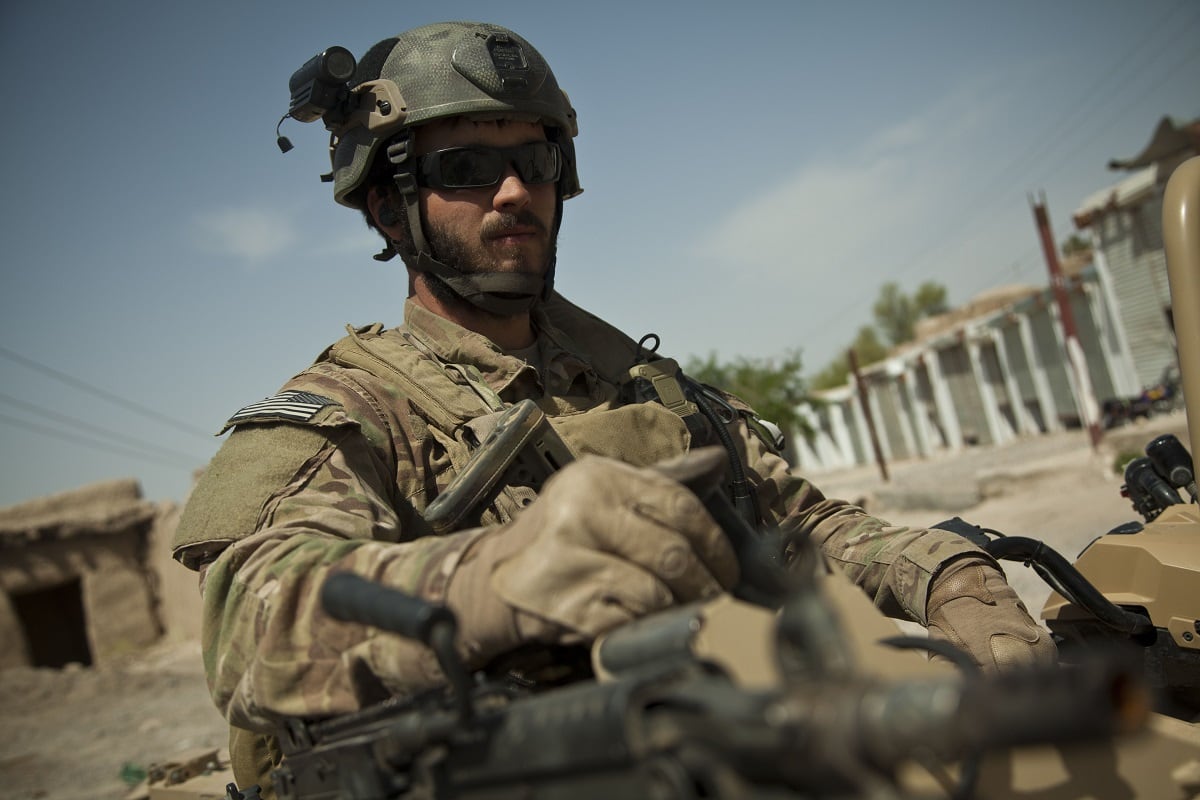Just as 2017 kicked off, then-Army Secretary Eric Fanning signed a directive to authorize beards for Sikh soldiers, a change years in the making.
The move begged the question: If the Army says it’s safe for Sikhs to wear beards, what about everyone else?
Following the January directive, the Army continued to study the effectiveness of the standard gas mask. And Task and Purpose reported in late November that the Army had decided not to go ahead with beards.
But according to Sergeant Major of the Army Dan Dailey, new Army Secretary Mark Esper has not made a final decision one way or another.
As such, Dailey said, he declined to comment further on the issue.
RELATED

Back in late 2016, the Army Research Lab tested the effectiveness of the M50 Joint Service Gas Mask on men with beards or who had long hair underneath a turban, and women in hijabs. After the January directive, they continued to study beards, Dailey told Army Times at the time.
“I’m not opposed to having a beard,” Dailey said then. “I’ve socialized this with several people, including [Army Chief of Staff Gen. Mark Milley] — how do we do that to maintain standards? I think that we have to continue that study.”
RELATED

The issue of beards is very popular among soldiers, and it’s a topic that often comes up when senior leaders visit troops at various installations across the country.
Dailey told Army Times in March that any decision on beards would be made very deliberately.
“Any potential change in policy will be made with careful consideration to the professionalism, standards, discipline, readiness and safety of all of our soldiers,” Dailey said.
Beards are one of many issues in limbo now, as the service spent the year transitioning from an Obama-era acting Army secretary, to an undersecretary serving as acting secretary, to now a Trump administration appointee settling into the job.
After a lengthy confirmation process, Esper was sworn in as Army secretary on Nov. 20.
For now, beards are still authorized for special operations soldiers and those with waivers, including Sikhs.
Those soldiers are not permitted to serve in Chemical, Biological, Radiological, Nuclear and Explosive units. In other instances, it’s up to a commander’s discretion whether a Sikh must shave, for instance, when deployed to an area with a significant chemical attack threat.
Meghann Myers is the Pentagon bureau chief at Military Times. She covers operations, policy, personnel, leadership and other issues affecting service members.




